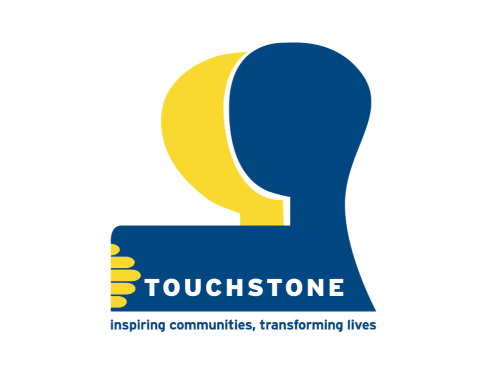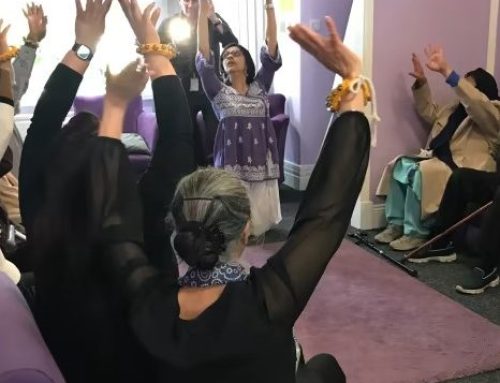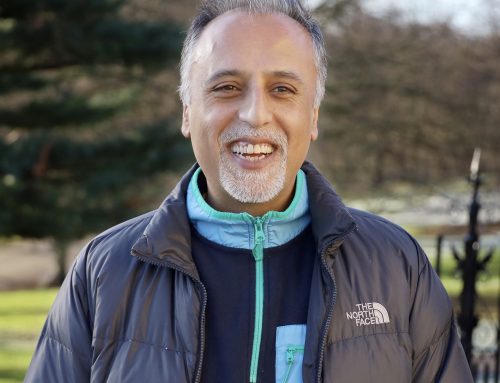During 2014–2015 there have been numerous developments in the Improving Access to Psychological Therapies (IAPT) team. The staff team has grown to 18 staff, including a trainee PWP (Psychological Wellbeing Practitioner) who is on track to becoming qualified as well as a new role in the team of Deputy Manager.
We have continued to provide a service to a large portion of the Leeds’ community in 12 venues including Harehills, Chapeltown, Armley, Hyde Park, Woodhouse, City Centre and Sheepscar.
We have also been able to continue to provide a service out of normal working hours for clients who find it difficult to attend between 9am–5pm. 20% of our staff’s clinical time is out of hours covering both early morning appointments, evening appointments and a Saturday clinic.
In 2014/15 the team provided over 7,000 contacts; with 4,272 being at step 2 and 2,866 at step 3.
250 referrals were made directly to the Touchstone IAPT service in 2014/15, 51% of the referrals direct to Touchstone were from BME populations.
Of these, 95% waited less than 29 days for an initial assessment. 49% of the clients waited less than 29 days to start one to one therapy within the Touchstone team and 91% of the clients that completed treatment recovered.
Within the wider Leeds IAPT service the Touchstone team delivered one to one therapy to 287 clients, of these 89 completed treatment.
We have been involved in delivering a range of psycho-education classes within the consortium over the last year, including both daytime and evening stress control and depression recovery classes. In Quarter 1 of 2015–16 the team has delivered 43 class sessions, within these classes 130 clients have completed the 6 week programme.
Our end of treatment feedback questionnaire return rate has increased from 18.8% to 19.2% this year. In Quarter 1 of 2015–16 Touchstone IAPT have received 20 positive comments through these questionnaires and 70% Leeds IAPT clients have reported that they are satisfied at ‘all times’ through their treatment.
New developments
We have initiated a Cognitive Behavioural Analysis System of Psychotherapy (CBASP) pilot to introduce a new type of therapy to work with chronic and relapsing depression in Leeds IAPT and test its effectiveness.
In Quarter 1 of 2015 we also carried out a 3 month pilot through partnership working with Leeds Counselling for clients who are involved with the Leeds Probation Service. Within the pilot we received 41 referrals, a number of these clients were assessed and referred onto specialist services and 6 were offered an IAPT service.
Since April 2015 we have also been involved with the launch of a new computerised CBT programme called Silvercloud, which clients can access online without the added demand of attending appointments. We have had positive feedback about this method and numerous members of the team now provide this to clients. In July, we provided over 40 online appointments through this programme.
Case study: female, 57
The client was originally referred to the IAPT service to work on anxiety and low mood as she was struggling to cope with a long term health condition. The type of treatment of the sessions was CBT based Guided Self Help.
In the first session we reviewed the client’s progress since assessment and set goals to work towards in treatment. The client wanted to be able to reduce her level of worry to a manageable level and be able to re-engage with key activities in her life. We explored the client’s symptoms through a ‘5 area model’ which helped her to understand how unhelpful thought processes and behaviours were impacting on her both physically and emotionally.
The second session introduced a technique called behavioural activation which focuses on increasing a person’s level of pleasurable, routine and necessary activities in their life in order to re-establish a routine.
The third session reviewed the client’s progress with behavioural activation, she had been able to meet some of her goals of spending time taking photographs and attending a family event.
The fourth session was spent reviewing the client’s progress and further steps for treatment. The client chose to engage in cognitive restructuring in order to reduce the level of unhelpful thoughts and we started to look at the link between unhelpful thinking and emotions.
The fifth session continued with cognitive restructuring. We used a step by step technique to challenge thoughts that were causing distress by looking at evidence that these thoughts were not based in reality.
At the sixth session the client felt that the techniques she had used had helped her and was feeling significantly better, she now felt able to cope with her long term health condition. She had re-engaged with activities that she had started to withdraw from; and had been able to reduce her level of worrying thoughts. It was agreed that the client did not need any further therapy due to her level of improvement.
Quotes from service users
“I have used the tools we were taught and it has made a real difference to my life. I am sleeping better than I have in such a long time, don’t need the medication. I feel more positive, and realise that I will have ‘off days’ but now know how to deal with them.”
“I feel for the first time I have been given some answers and information that will help me to not only manage my symptoms but eventually to conquer them and move on.”





